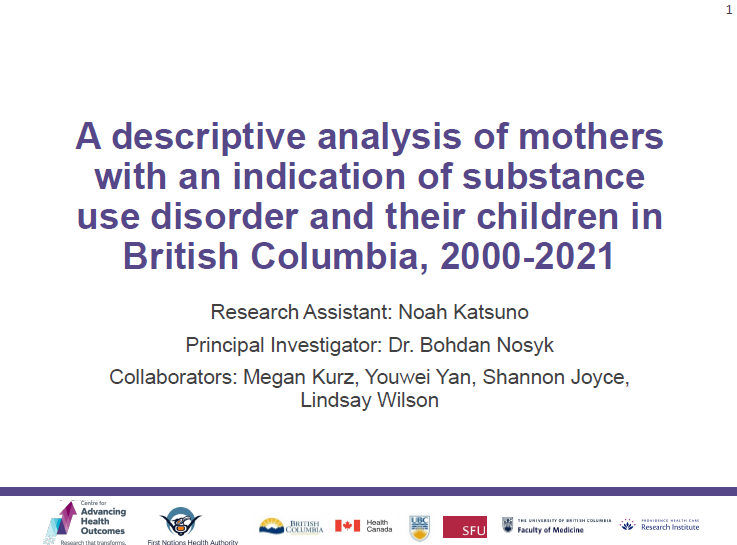Cohort profile: mothers with an indication of substance use disorder and their offspring in British Columbia, 2000-2021
Main Article Content
Abstract
Between 2010 to 2017, the proportion of mothers with opioid-related diagnoses for every 1000 delivery hospitalizations increased by 131%. To address this issue, the cohort profile was developed to (1) describe the characteristics of mothers with an indication of substance use disorder (SUD) and (2) define the developmental trajectories of their offspring. This cohort profile was developed as part of a population-based retrospective cohort study linking ten provincial health administrative databases in BC. Individuals were enrolled if they had at least one SUD-related record in the linked database one year prior to the date of their first pregnancy-related health care visit. The follow-up period ranged from 1 April 2000 to 31 March 2021 or until they died or there were no updated records for at least 66 months before the follow-up end date. Before the first year of life, 56 children born to mothers with SUD lost their mothers during the study period. The rate of maternal mortality remained constant until age 4. Among these children, no primary cause for mental health-related hospital discharges were described until age 8. By age 10, major depressive disorder was the primary cause, with a rate of 17% at age 16. Additionally, mental health prescriptions to these children were dispensed as early as age 4 for stimulants, reaching a rate of 9% at age 11. There is a high burden of disease for these mothers and children. Immediate public health response is necessary to prevent further development of adverse neonatal and maternal health outcomes.
Article Details

This work is licensed under a Creative Commons Attribution-NonCommercial-NoDerivatives 4.0 International License.
References
Hirai AH, Ko JY, Owens PL, Stocks C, Patrick SW. Neonatal Abstinence Syndrome and Maternal Opioid-Related Diagnoses in the US, 2010-2017. Jama. 2021;325(2):146-55.

